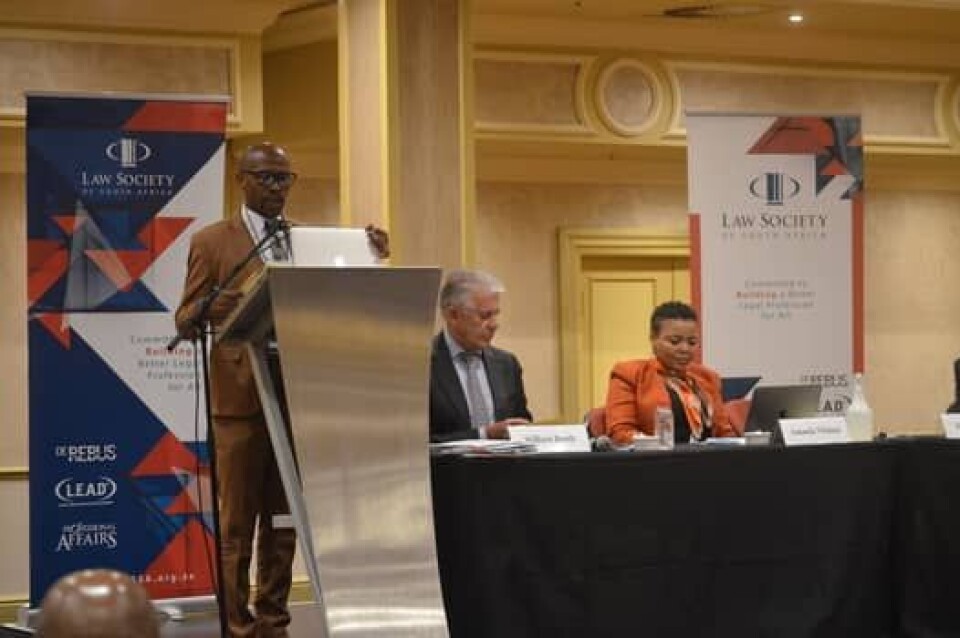Copyright : Re-publication of this article is authorised only in the following circumstances; the writer and Africa Legal are both recognised as the author and the website address www.africa-legal.com and original article link are back linked. Re-publication without both must be preauthorised by contacting editor@africa-legal.com
Lawyers’ Role in Combating Corruption

While there is no magic formula for combating corruption, lawyers in South Africa have thrown their weight behind the fight against the malfeasance that has overshadowed the country, writes Annie Dorasamy.
The Law Society of South Africa’s (LSSA) Criminal Law Committee, has said they will offer their skills and expertise to the National Prosecuting Authority (NPA) in light of a damning report by Chief Justice Raymond Zondo regarding State Capture. Zondo’s report revealed systemic political corruption in multiple state owned entities, and those who have been implicated will now have to face the courts.
Criminal defence lawyer William Booth was among the panelists at LSSA’s annual general meeting speaking on the role of lawyers in combating corruption. He said the NPA’s perception of defence lawyers being on the “other” side warranted change. “The country is a victim of corruption so there is an opportunity to work towards a specific goal,” Booth argued.
He said the country’s lawyers should work similarly to their UK counterparts. “In the UK, lawyers appear both in their private capacity and they appear on behalf of the state. We have got to approach the NPA with that kind of view. We need to send a message to the NPA, that we as legal practitioners are able to assist. We are all here to serve justice. We want to make sure that those who have committed these serious offences are all brought to book.”
He believes lawyers can play their part according to their expertise. “You don't just have to be a criminal law practitioner, you can be involved as someone who is in corporate or commercial law. You could be somebody with the expertise to even examine various bank statements, to follow the money where it might end up in Dubai, Hong Kong or the UK.”
Amanda Vilakazi, Head of Litigation and Dispute Resolution at Buthelezi Vilakazi law firm, pointed to the country already having numerous Acts and statutes upon which lawyers could act.
“We have the Financial Intelligence Centre Act which provides the framework of identifying corruption,” she said. “As legal practitioners we are obliged to report suspicious activity. We have a major role in upholding and advancing the rule of law. Lawyers are bound by a strong code of ethics and many regulations and laws which we are bound to observe and apply when dealing with our clients and dealing with our community in general.”
Fellow panelist Zincedile Tiya said while there wasn’t a shortage of regulations or Acts, lawyers have been accused of enabling criminal behaviour. “The requirement for being a lawyer is that you must be fit and proper, but politicians who are corrupt claim that lawyers show them the loopholes in the law and that lawyers assist them with corrupt transactions,” Tiya commented.
What then becomes the role of lawyers in combating corruption? Tiya said they should be ethical and stop taking instructions for the sake of money. “We need to stop being in the pockets of politicians, we need to stop advising corrupt people and showing them loopholes in our law, and we need to expose corrupt activities and risks that may otherwise remain hidden. We need to keep the public sector honest, transparent and accountable. We need to help stop dishonest practices and ensure that public sector employees act in the public interest.”
Africa Legal and LexisNexis recently published a ground-breaking report which shines a light on the trends, barriers and aspirations for the rule of law across Africa. To read the full report click here.
To join Africa Legal's mailing list please click here
